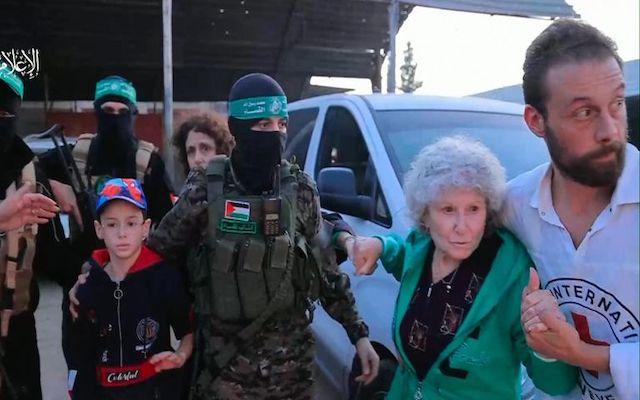In a significant development, Hamas has put forward a ceasefire proposal aimed at halting hostilities in Gaza for a period of four-and-a-half months. This plan, which emerges as a counteroffer to a previous initiative facilitated by Qatari and Egyptian mediators, outlines a comprehensive framework for peace, envisioning the liberation of all hostages, the complete withdrawal of Israeli forces from the Gaza Strip, and a conclusive agreement to terminate the conflict. The proposal has sparked a wave of optimism across the Gaza Strip, signaling a potential pivot towards peace amid the largest diplomatic endeavor to date to secure an extended cessation of violence.
🚨U.S: WE ARE REVIEWING HAMAS’ CEASEFIRE PROPOSAL
— Mario Nawfal (@MarioNawfal) February 6, 2024
Blinken: "We are reviewing Hamas’ response to the framework agreement, and I will discuss it with the Israeli government on Wednesday.
A lot of work will have to be done, but America continues to believe that an agreement can… https://t.co/ARPfYgZ86j pic.twitter.com/5eWOf7pvIY
However, Israel's stance remains firm, with official statements underscoring a commitment not to withdraw its forces from Gaza until the complete dismantlement of Hamas is achieved. The Hamas proposal, detailed in a draft document reviewed by Reuters, suggests a trilateral truce, divided into 45-day intervals, encompassing the exchange of Israeli hostages captured on October 7 for Palestinian prisoners, the initiation of Gaza's reconstruction, a full Israeli military withdrawal, and the exchange of bodies and remains.
The arrival of U.S. Secretary of State Antony Blinken in Israel, following discussions with the leaders of Qatar and Egypt, underscores the intensity of the international diplomatic efforts aimed at brokering a sustained truce. Sources close to the negotiations reveal that Hamas's counterproposal does not insist on an immediate guarantee of a permanent ceasefire but emphasizes that an agreement to end the conflict must be brokered during the truce, prior to the release of the final hostages.
Hamas has responded to the hostage proposal with an alternate plan that has three phases, each lasting 45 days.
— Aviva Klompas (@AvivaKlompas) February 7, 2024
Phase 1 - The release of all Israeli women hostages, males under 19, the elderly and sick in exchange for the release of Palestinian women and children from Israeli…
The ceasefire plan outlines a phased approach to peace, with the initial 45 days dedicated to the release of specific groups of Israeli hostages — including all women, minors under 19, and the elderly and ill — in exchange for Palestinian women and children detained in Israeli facilities. This phase also calls for an Israeli military withdrawal from populated regions. The commencement of the second phase is contingent upon the conclusion of "indirect talks" aimed at defining the prerequisites for halting military operations and restoring complete calm, leading to the release of the remaining male hostages and the withdrawal of Israeli forces from the Gaza Strip. The third phase would see the exchange of bodies and remains, alongside an enhancement in the delivery of food and other humanitarian aid to Gaza's civilian population, currently grappling with acute food scarcity and shortages of basic necessities.
Civilians in Gaza, such as Yamen Hamad, a father residing in a U.N. school in Deir Al-Balah, express cautious optimism, yearning for the proposal to evolve into a tangible agreement that will conclude the warfare. Despite the ongoing bombardment, the prospect of a ceasefire brings a glimmer of hope to those affected by the conflict.
According to reports, Hamas has proposed a three-phase ceasefire plan for 135 days, which will end the ongoing war with Israel. This comes in response to a recent proposal sent by mediators from Qatar and Egypt and supported by the US and Israel.#ceasefire #IsraelPalestineWar pic.twitter.com/wCaE0YG6rD
— Bnz English (@BnzEnglish) February 7, 2024
This proposal comes in the backdrop of a devastating military offensive launched by Israel in response to an unprovoked, barbaric and gruesome attack by Hamas militants from Gaza on October 7, which resulted in 1,200 Israeli casualties and the taking of 253 hostages. The Hamas-led Palestinian Health Ministry in Gaza reports at least 27,585 Palestinian casualties as a result of Israel's military actions, with thousands more feared lost under the debris although no distinction is made between how many of the dead are militants. According to Israeli estimates, close to 15,000 militants from Hamas and other terror groups have been killed or captured.


